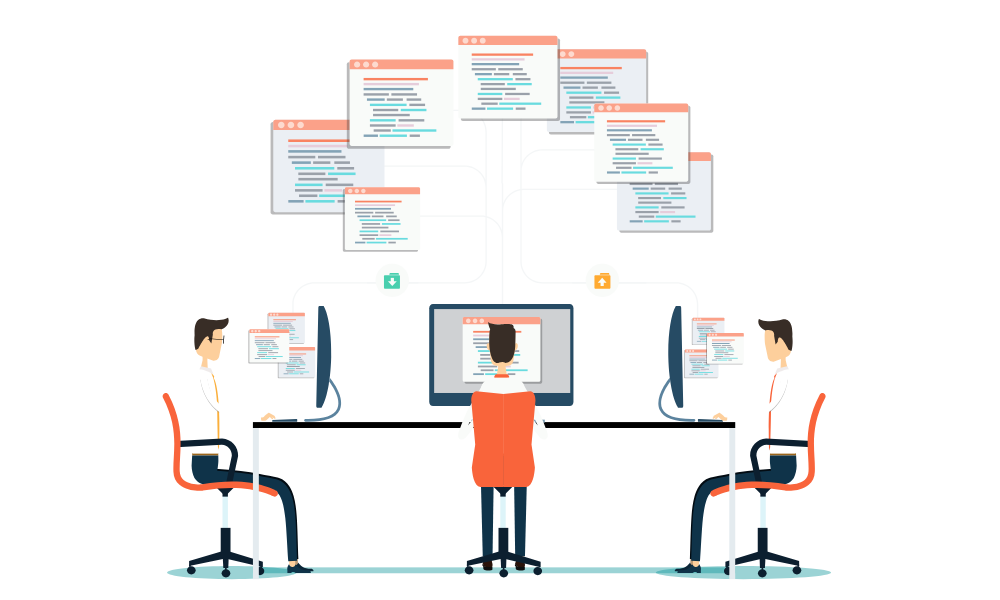The rise of open-source solutions aligns with many key fintech advancements, enabling companies to stay ahead in a rapidly evolving industry.
Many areas of the fintech industry are still shifting from its traditional reliance on proprietary software. Historically, open-source technologies were viewed with scepticism due to security concerns, but today financial institutions, including challenger banks like Monzo and Revolut have adopted open-source platforms to foster innovation, adaptability, and a competitive edge.  A recent example that highlights the challenges of being reliant on proprietary software is Oracle’s 2023 change to its Java SE subscription model, which shifted to an employee-based pricing system. This simple licensing change resulted in significant cost increases for many organisations, raising operational expenses by up to five times. The move pushed numerous companies to transition to OpenJDK, the open-source version of Java, which offers greater flexibility and substantial cost savings.
A recent example that highlights the challenges of being reliant on proprietary software is Oracle’s 2023 change to its Java SE subscription model, which shifted to an employee-based pricing system. This simple licensing change resulted in significant cost increases for many organisations, raising operational expenses by up to five times. The move pushed numerous companies to transition to OpenJDK, the open-source version of Java, which offers greater flexibility and substantial cost savings.
What are the Advantages of Open Source for Fintech?
- Cost-effectiveness: They can eliminate multi-user licence fees, admin charges, and support costs which frees resources for other things such as compliance, security, and customer experience.
- Innovation & Competition: They reduce dependence on monopolistic vendors that control the market and can foster transparency, collaboration, and a more competitive ecosystem.
- Security: Open transparency allows faster identification and resolution of vulnerabilities which can ensure robust and compliant infrastructure.
- Interoperability: Open standards facilitate seamless system integration, reduce costs, and prevent vendor lock-in.
- Future-proofing: Publicly accessible code encourages longevity, allowing ongoing community-driven updates and improvements.

Artificial Intelligence (AI) and Machine Learning (ML)
Open-source AI deep learning frameworks, such as TensorFlow and PyTorch, make it easier and more affordable for fintech start-ups and established players to innovate. These type of tools can enable the development of AI-driven solutions like fraud detection, personalised customer services, and back-office automation. AI and ML technologies can help with fraud detection to identify suspicious transaction patterns to prevent financial fraud. It can also help with hyper-personalisation by using real-time data analysis to create tailored customer experiences which helps drive customer engagement and retention.
Blockchain and Decentralised Finance (DeFi)
Open-source blockchain platforms like Ethereum and Hyperledger have provided a foundation for decentralised financial applications, which reduce reliance on intermediaries. DeFi platforms, such as Uniswap and Aave, enable peer-to-peer lending and asset management, offering alternatives to traditional banking. These platforms have inspired start-ups to create innovative, cost-effective solutions whilst helping to change the shape the financial services landscape.
Hyper-personalisation
Consumers increasingly demand personalised financial services and open-source tools can enable fintech companies to harness real-time data to deliver tailored offerings such as customised investment portfolios, loan products, and pricing models. This can not only improve customer satisfaction but also enhance retention to boost profitability.
Interoperability in Open Banking
Open-source standards help facilitate the integration of diverse systems, which is crucial to open banking. It allows financial institutions to easily connect applications, fostering collaboration to creating innovative customer-centric ecosystems.
What are the benefits of integrating Open Source technologies in Fintech?
Embracing open-source technology is a strategic necessity for many fintech companies looking to remain competitive. It offers a significantly more cost-effective alternative to proprietary software that is secure, and scalable. It promotes transparency, collaboration, and innovation. In short, open-source platforms empower fintech institutions to:
- Reduce dependency on costly and restrictive proprietary software.
- Adapt to rapid technological and market changes.
- Build tailored, customer-focused solutions that drive growth and differentiation.
What is the future of Fintech and Open Source technologies?
As the fintech landscape evolves, traditional proprietary solutions are increasingly ill-equipped to meet the demands and agility required in an ever evolving, competitive, digital-first world. Open-source technologies offer the flexibility and cost savings that ambitious fintech organisations need to thrive. By reducing vendor lock-in, enabling interoperability, and fostering community collaboration, open-source software ensures fintech companies can adapt and innovate while future-proofing their operations. The application of open source technology isn’t just a tool for today, it’s the foundation for a resilient and competitive fintech future.
How do Pipe Ten support the Fintech Industry?
Pipe Ten specialise in supporting fintech companies by understanding the unique needs of the FinTech sector, we offer solutions that manage high volumes, ensure transactional security, and comply with strict regulatory standards, supporting your innovative financial solutions. Our experience includes collaborating with teams to design and manage resilient infrastructures, as demonstrated in our work with leading UK financial organisations to enable real-time payments through the Faster Payments network. From project orchestration and audit readiness to 24/7 monitoring and physical hardware security modules, we empower fintech companies to achieve faster time-to-market, build stakeholder trust, and scale confidently.
Author: Gavin Kimpton
A founder of Pipe Ten, Gavin has been a leader in the digital sector for over 30 years, specialising in website hosting, domain registration, and international site launches. He has navigated evolving internet governance, from new top-level domains to security and compliance. Under his leadership, Pipe Ten became a Nominet-accredited channel partner, reflecting his deep expertise in the digital ecosystem.
